Earlier I wrote a blog on Dryblower Jack based on Norma King's research.
Following this I received more information and photos of him from Liz Manners. Jack Carins was her Great Uncle, so I am very grateful for her sharing this information with me.
Arriving in WA in 1913, he first worked as a farm labourer in the State's south-west. Later he moved to the Eastern Goldfields and was engaged in sandalwood cutting until becoming a prospector for gold. He lived for many years in a small camp he built just outside Coolgardie. He spoke fluent German and two Aboriginal languages as well as his native English. He was also a poet and philosopher.
He joined the army in May 1916 at the age of 25. He was wounded in the left arm in October 1917. The bullet was never removed as it didn’t really bother him. He was gassed in July 1918 and he finally returned to Australia in September 1919.
Two of his poems were published in "Verse From The Goldfields" by Margaret Bull in 1975. "A Plea for Mercy" and "The Wonggi's Lament". The following poem was found in Liz's Grandmother's writing case, which may not have been published. It was transcribed by Liz's father, John Reed Carins, who was named after his uncle Jack:
"The Brumbies of Coolgardie"
We watched the herds increasing as years went by
Now their halcyon days are over the wild horse herds must die.
They have strayed upon the highways so the callous road hogs say
to remove this equine menace we must sweep the herds away.
So one and all must fall before the gunshots fiery breath,
For the horses' day is ended, and his race is marked for death
A band of eager hunters are gathered for the fray
For the old blood lust still lingers in the hearts of men today
and they welcome this occasion to test their murderous skill,
On the poor defenceless brumbies who have never done them ill.
The sires and dams and playful foals so innocent and free
Each one must fall a victim to the cruel 303.
For the edict has been issued that the wild unbroken lot
Must be slain by hired assassins and their bodies left to rot.
Though they drank our loaming water and spoilt each cycle track
We still forgave the brumbies when we cast our memories back.
To the days when men came questing, an avid human tide
To reap the golden harvest from the fields, new found and wide.
In those days we chased the rainbows and o'er many distant track
And our hardy little brumbies took us thee and brought us back. Well and
faithful they served us, in cart and heavy drays
So we make our plea for mercy for the brumby herds today.
We won't long survive their passing, our own race in nearly run
And soon we'll reach our long last rest beyond the setting sun.
But while still one of us remains on Earth below
It won't be wise for one who shared this crime, to let them know
Or he'll hear his ancestry impugned by the old Australian word
Should he dare to boast about the time he shot the brumby heard.
The following explanations were given after the poem:
the loaming water - the water we used in prospecting in the open bush is often stolen by horses, goats or kangaroos, which causes us considerable inconvenience.
spoilt each cycle track - after rain the horses seem to deliglht in plunging along cycle pads which doesn't improve them.
303 carbine is always called point 303 here.
Liz Manners advised me that:
"According to Jack Carins, his great grandfather was a flour miller with mills driven by water wheels at Blyth, Whalton, Kelso, Cowgate and Ponteland. John Reed Carins left home as he had 'fallen out' his father. He was not interested in farming (and as he was the eldest son this would not have gone down too well) and was more interested in the 'natural world'. He sent word to his mother Margaret Lyall and sister Mary Reed Carins that he was intending to go to Australia. They went to the Quayside in Newcastle to see him off. That would be in about 1911 (when Jack was 21) - they never saw each other again. However John Reed Carins wrote to his sister every fortnight for the rest of his life.
... Jack married a Catholic lady, a widow with children, but the marriage didn't work out. The problem was, apparently, the children."
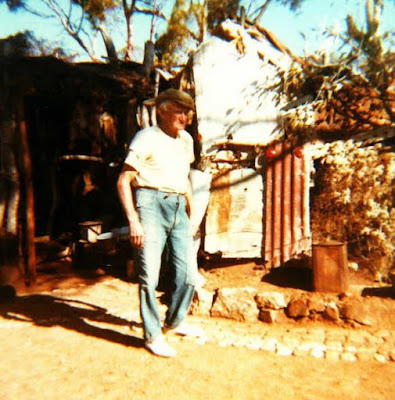

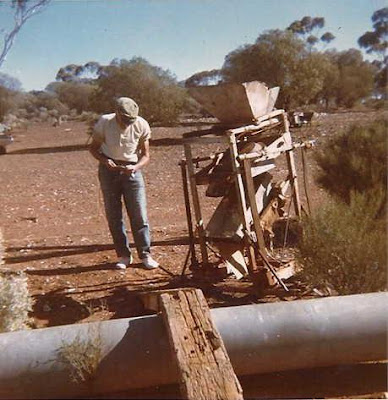
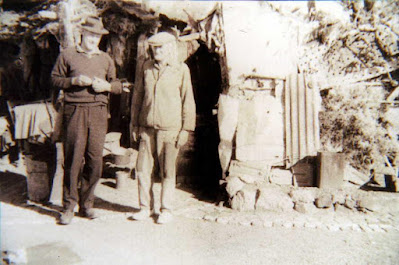

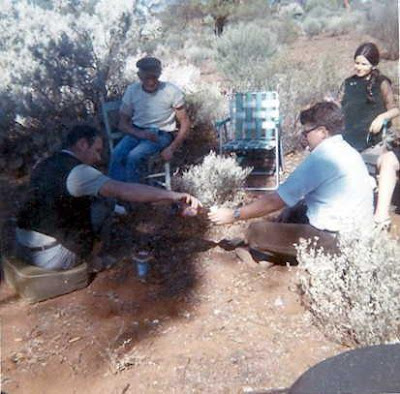


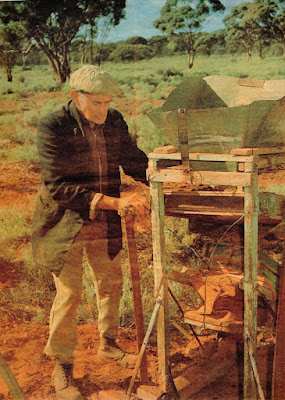


No comments:
Post a Comment